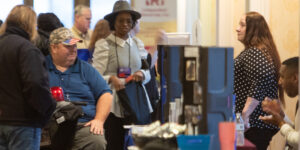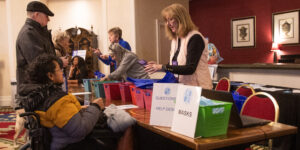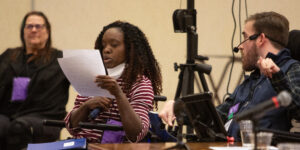SPEAKERS & SESSIONS
LIFE Conference XXVII in 2026 will feature a Keynote Address and 9 concurrent sessions covering subjects like Expanding Decision-making Options for People with Disabilities, Smart Home Innovations for AAC Users, Advocacy 101: How to Speak Up and Make a Difference, Parenting with a Disability, and much more!
Click the button below to view the January 2025 conference schedule. If you missed the 2025 conference, view the 2025 Presentations page at https://lifeconferencede.org/2025-presentations/.
SPONSORS
d
Each year over sixty organizations shared their products or services with our attendees.
Click the button below for more information from 2025.
Watch this page for LIFE Conference 2026 Sponsor information.
For a complete list of Sponsors that supported the 2025 LIFE Conference, please visit the Sponsor page by clicking the button below.
The mission of the LIFE Conference is to be at the forefront of providing information, educational resources and opportunities for persons with disabilities, their families, caregivers, educators and providers. The primary goal of the LIFE Conference is to promote and support full community integration by focusing on the four areas of Legislation, Independence, Families, and Education. The LIFE Conference offers its attendees the opportunity to learn, network, and participate in sessions designed to share information with all participants, including policy makers and the general public.
Living Informed, Feeling Empowered!
The LIFE Conference is partially supported by the Administration for Community Living (ACL), U.S. Department of Health and Human Services (HHS) as part of a financial assistance award totaling 527,570 with 82 percentage funded by ACL/HHS and $115,000 amount and 18 percentage funded by non-government source(s). The contents, views and opinions are those of the author(s) and do not necessarily represent the official views of, nor an endorsement, by Developmental Disabilities Council, ACL/HHS, or the U.S. Government.

